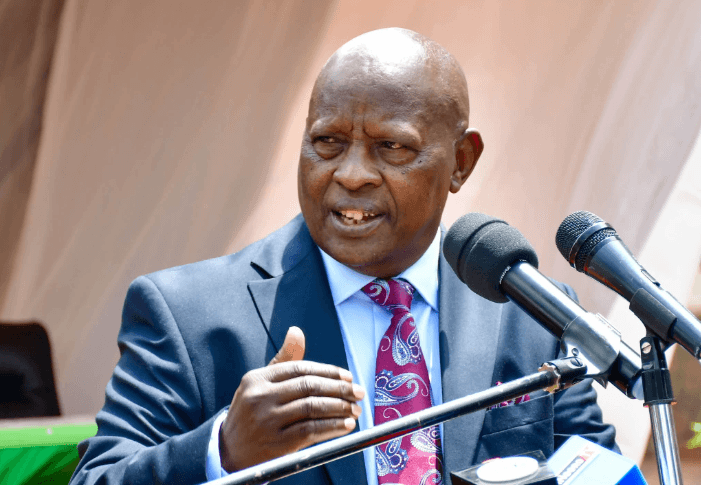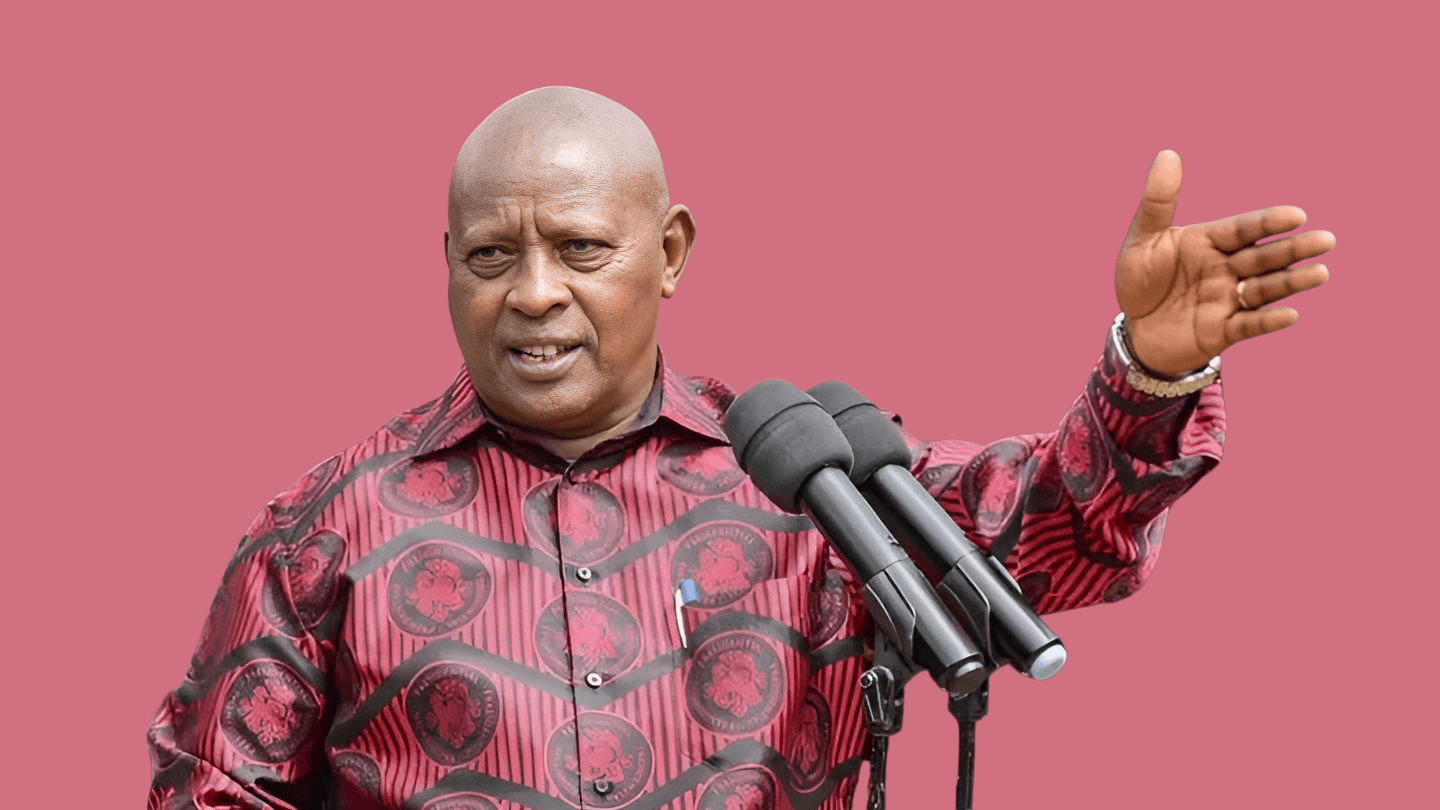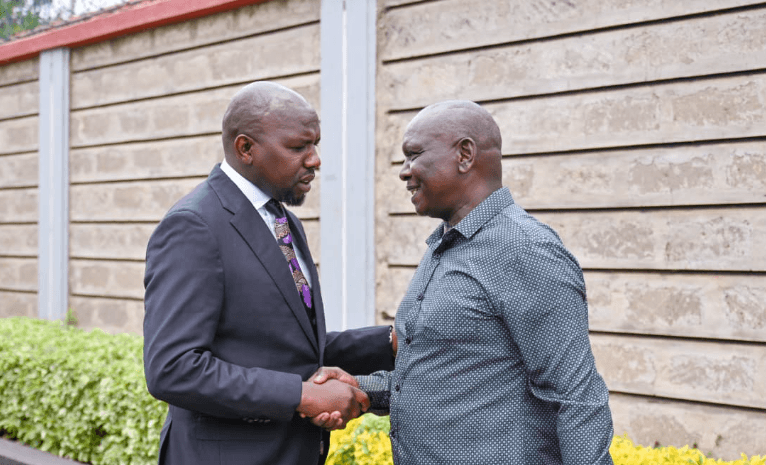A literary dynamo is a person who brings energy, creativity and innovation to the field of literature, actively driving change and inspiring others through their work.
Lexa Lubanga is one such individual within the context of creative writing in Kenya today. A self-proclaimed literary activist, her journey is one of relentless pursuit of her love for books and the creative power they hold. Her story illustrates the impact of literature in shaping minds and societies in our lifetime.
She shared with the Star this week that her literary journey began in the small corn village of Kabula in Bungoma county a quarter of a century ago, where her upbringing was rich with cultural diversity.
“Even at the age of four, I was determined to make others understand my first language,” Lexa recalls. Surrounded by family members who were avid readers, her path seemed destined. “Everyone around me was always carrying books, including my father, who could finish a novel in one continuous sitting.” This early exposure to literature sparked a passion that would define her life.
The young scribe studied at Kenyatta University, where she pursued a B Ed degree (English and Literature). I taught her in several units, further fuelling her literary inclinations.
Influences from literary giants such as Chimamanda, Wallah Bin Wallah and Meja Mwangi shaped her understanding and appreciation of literature. A pivotal moment was discovering Moses Auta’s popular Class 6 storybook, Go for it, which encouraged her to chase her dreams despite obstacles.
“Such a small yet powerful book,” she says, reflecting on its impact. It is one of the New Progressive Primary English Readers published by Oxford. School storybooks are key in building Kenyan literature.
She has a passion for literature that has been cultivated both by her academic experiences and personal explorations. “I have always been drawn to the literary world due to my upbringing and passion for storytelling,” she says.
This deep connection with literature guided her career and shaped her identity as a literary activist. “Through my activism, I can rightfully lead those getting into the reading rooms and offer them a map of different spaces they would want to venture into or explore,” Lexa says.
Her literary commitment is expressed illustratively through her initiative, the Kenyan Readathon. Launched in 2020, the Readathon is a month-long marathon aimed at promoting Kenyan literature. “There are no rules or restrictions; readers are encouraged to read as much as they can and share their progress with others,” Lexa says.
The Readathon has grown into a significant event on the literary calendar, providing a platform for readers to explore Kenyan literature in depth. The successive success of the Readathon series over the years is indicative of her visionary approach as a Gen Z art leader and ability to galvanise the literary community.
Today, Lexa’s literary passions are as vibrant as ever. She is currently reading the 545-page Burying Caesar, the latest book of Meja Mwangi, which was published in August last year. It is part of her preparation for an event dedicated to Mwangi’s enthusiasts. Her schedule is filled with literary activities, from organising meet-and-greet events to working on her novel. “I am a big fan of Meja’s writing,” she says.
Her dedication to promoting Kenyan literature extends beyond the Readathon. Through Wazalendo Readers, a book subscription service, she offers readers the opportunity to add Kenyan books to their collections each month.
“This initiative aligns with my strong passion for promoting a deep appreciation for our literature among readers,” she says. Wazalendo Readers curates and delivers boxes containing a featured Kenyan book along with special bookish gifts, fostering a culture of reading and appreciation for local authors.
Typical of her generation Z, Lexa leverages social media to promote literature and engage with her audience. “I am active on Instagram, Facebook and X only for my literary advocacy. I also have a YouTube channel dedicated to sharing my bookish content,” she says.
Her digital presence has been instrumental in filling the room for her Readathon events and connecting with a broader audience. “In this fast-paced era of social media, I leverage its power to ensure that new books, authors and upcoming events receive the spotlight they deserve,” Lexa says.
As a youthful art leader, Lexa’s perception of literature is deeply influenced by her age group. “Fasihi ni kioo cha jamii,” she says, highlighting the literature and society interface. Her vision for the future of Kenyan literature is both hopeful and critical. “If we allow ourselves to write more revolutionary works about the society we live in, then the only plausible end result is the peak of brilliance,” she says.
This literary mentee of mine emphasises the role of youth in promoting the arts in Kenya. “Group and inspire from the grassroots to the different classes. Commit and not just for the limelight but for future generations,” she says.
Her message to the new Arts Cabinet Secretary is clear: “I would urge for the creation of more opportunities and spaces for Kenyan creatives. There are always people willing and wanting to do good, for others and especially for our arts.”
Lexa’s journey as a literary activist is not without its challenges. “There is always a need to know more; it’s a constant phase. I have to educate myself on every single Kenyan-authored book,” she says.
Despite the high expectations and constant demand to stay well-versed in Kenyan literature, Lexa remains resilient. “I have learned to pick my battles wisely. I cannot afford to fight each one because there are many,” she says.
Her advice for aspiring literary enthusiasts is straightforward: “Don’t wait for anyone’s support, go for it and make yourself known to other enthusiasts out there. Promote as much Kenyan literature as possible, every single day.”
Lexa Lubanga’s resilience and commitment illustrate the power of youths in revitalising our canons of art.










